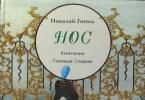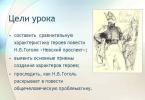An African fruit - pomegranate, is known and loved by many. This is an exceptionally useful fruit, which includes many vitamins and nutrients. Pomegranate is consumed fresh, and also juice, jam, various sauces and wine are made from it.
If we talk about the calorie content of pomegranate, then it is very often recommended to introduce it into the diet menu.
Surprisingly, pomegranate can be eaten with seeds. Pomegranate seeds are solid fiber, so you need to use pomegranate, because it perfectly cleanses the body, burns fat and saturates the body with the necessary elements.
What is the calorie content of a pomegranate, you ask? You don't have to worry the calorie content of a whole pomegranate with seeds is 172 kcal, which is quite a bit.
If the calorie content of one medium pomegranate is so low, then it can be eaten all day long (for breakfast, lunch and dinner). Overseas fruit can be eaten as an independent dish or added to diet salads and desserts.
Delicious and healthy fruit the calorie content of which per 100 g is 70 kcal, can be eaten by both adults and small children from a year old.
Surely each of you has tried pomegranate. Its juicy and sweet grains with a slight sourness will not leave anyone indifferent. This fruit is a pride for the countries of the East, and in fact they are the birthplace of the pomegranate. It has been famous for many centuries, it is revered, legends are made about it and miraculous properties are attributed to it. In fact, pomegranate gives a huge benefit to a person, its calorie content is very low, and it can easily replace a sweet dessert for people who care about their figure. At the same time, it will help to nourish the body with all the missing vitamins and even cope with many ailments. What kind of fruit is this - pomegranate? You will find photos, descriptions of useful properties and interesting facts about this wonderful plant in our article.
The fruits of the pomegranate were known to people long before our era, and Persia is considered its homeland. In ancient times, a lot of magical properties were attributed to the grenade. It was believed that its fruits are able to kindle a great feeling of love, they were a symbol of marital fidelity, a happy marriage and the birth of a new life.
The fruit with ruby seeds is mentioned in the holy book of Muslims - the Koran, it says that this is a fruit from paradise, and it is able to help people curb their sinful thoughts.
Many people think that pomegranate is a fruit, but in fact it is a berry. It consists of a huge number of seeds (from 500-700) surrounded by light pulp.
On October 26, Azerbaijan celebrates the day of such fruit as pomegranate. Calorie content, benefits and hundreds of oriental recipes allow you to create a huge number of light desserts, drinks and delicious dishes from it.
The benefits of pomegranate
The benefits of this plant are enormous, and people use not only the fruits, but also the bark, roots, and even flowers of a tree called pomegranate. A photo of flowering pastenia is simply mesmerizing with its beauty.

This plant contains a huge amount of antiseptic substances, therefore it is often used as a disinfectant. Only the pomegranate itself (grains) is used for food, and delicious and fragrant tea is usually brewed from the remaining parts or medicinal decoctions are made.
Traditional medicine successfully uses pomegranate in the treatment of kidneys, the genitourinary system, and fights stones. A decoction of flowers is useful for eye diseases, and the ancient Egyptians used a pomegranate to get rid of uninvited guests - helminths and treated dysentery.
Application in cosmetology
Pomegranate is not only tasty, but also good for our skin. A healing plant will help even out complexion, improve skin structure, and enhance tissue regeneration. Cosmetic oil is made from small pomegranate seeds. It helps to get rid of age spots, nourishes, eliminates oily skin problems and rejuvenates.

Pomegranate juice is often used to make masks, it helps to get rid of redness, peeling. Due to its properties, it easily removes any inflammation and helps to heal wounds.
The fair sex often use pomegranates to maintain their youth and beauty. Their reviews are more than impressive: it helps to cleanse the skin of inflammation and acne, saturate it with energy. Cosmetics manufacturers also often use the extract for their masks, lotions, creams and tanning products.
Vitamins and minerals
Pomegranate fruits contain many organic and fruit acids, a huge amount of potassium, calcium, phosphorus, magnesium and sodium. They are also rich in iron, manganese, copper, selenium and zinc.
Pomegranate contains a large amount of B vitamins and ascorbic acid (vitamin C). It has enough vitamins E and K 1, sugar and tannin. Pomegranate juice can perfectly quench your thirst on a hot day and is the leader among drinks containing antioxidants. It’s also nice that for all its benefits, pomegranate has a low calorie content.
Use in cooking, calories
The fruits are widely used in cooking in many countries of the world. They make excellent desserts, drinks, sauces and seasonings. Ruby pomegranate beads decorate dishes and make delicious wine from them. It is dried, eaten fresh or frozen for future use. The inhabitants of India, Iran, Turkey and Azerbaijan are especially masterly with the juicy fruit. We often use fresh pomegranate.

The calorie content of juicy berries is very low, only 83 kcal (per 100 g). At the same time, they contain a large amount of water (78 g), carbohydrates (18.6 g), a little fat and protein (just over 1 g).
Restrictions
Like all foods, pomegranate has its limitations. It should be used with caution in people prone to allergic reactions. It contains a lot of acids, so those who have an increased acidity of the stomach or an ulcer should be careful. After you eat a pomegranate, be sure to rinse your mouth with plain water: thanks to all the same acids, the juice can easily destroy tooth enamel. Excessive use of pomegranate for expectant and nursing mothers should be abandoned.

Pomegranate is one of the most unusual fruits, the healing properties of which people have noticed since ancient times. Moreover, useful substances are found not only in the juicy grains of the fruit, but also in its peel and seeds. When it comes to the treatment or prevention of anemia, in the first place, many people remember exactly about. However, this is far from the only use of pomegranate, which in ancient times was called the royal fruit.
Pomegranate peel can also be useful.
In cultivars of pomegranate, the edible part is up to 70%, the remaining 30% are seeds and peel. In no case should the latter be thrown away, since it contains no less useful substances than fruit grains. The calorie content of pomegranate is low - 100 g of pomegranate seeds, depending on the variety, contains only 65-75 kcal.
Pomegranate seeds are very juicy, because they are 80% water. The remaining 20%, and this is not so little, falls on various useful substances. There are practically no fats in this fruit, its juice contains 15 of the 20 amino acids needed by the human body, and carbohydrates are represented mainly by glucose, fructose and sucrose. It also contains some fiber, but it should be borne in mind that when preparing such a popular pomegranate juice, it is almost completely removed.
This "royal fruit" is valued for its rich vitamin and mineral composition. It contains a lot of ascorbic acid and B vitamins. In addition, it is rich in potassium, magnesium, iron, copper, aluminum, silicon and other trace elements. But this is not all the substances that make up the pomegranate. At 10%, its juice consists of organic acids, mainly citric and malic. It contains tannins and dyes, as well as flavonoids.
The pomegranate peel contains all the substances that are in its edible part, and the content of astringents is even greater. Pomegranate seeds contain a large amount of unsaturated fatty acids.
The benefits of pomegranate for the heart and blood vessels
The benefits of this fruit for the cardiovascular and hematopoietic system are undeniable. First of all, it is considered useful for. Even though there is not much iron in its juice. However, pomegranate juice contains ascorbic acid, which is necessary for the full absorption of iron. In this regard, iron is completely absorbed, firstly, from the pomegranate itself, and secondly, from other foods.
Vitamin C and flavonoids help strengthen the walls of blood vessels, they are involved in the production of collagen and other compounds that make them less fragile and permeable. Organic acids, of which there are quite a lot in pomegranate, contribute to the activation of fat metabolism, normalize, help cleanse blood vessels of cholesterol plaques. In addition, the substances contained in this fruit thin the blood.
Pomegranate has a diuretic effect, therefore, it helps to remove fluid from the body. Potassium, calcium, sodium and magnesium are useful in maintaining normal myocardial contractility.
Organic acids can have a detrimental effect on tooth enamel, so it is recommended to dilute pomegranate juice with water, drink through a straw, and then rinse your mouth thoroughly with clean water.
People who are prone to constipation should not consume pomegranate juice, and sometimes the fruit itself, as the astringents in its composition can lead to constipation.
It is better not to give pomegranate to children under 3 years old, since the acids that make up its composition can damage the mucous membrane of the gastrointestinal tract.
When using pomegranate, allergic reactions may occur.
RenTV, the program "Food of the Gods" about the pomegranate:
Red, juicy, with its very appearance it already causes appetite. And in the East, it was considered a symbol of fertility and was given to newlyweds. What is this about? About the pomegranate. This fruit is often used today to attract attention. For example, when advertising one brand of juice, it was he who was shown. Benefits and low with bones have long made it popular with the world's leading nutritionists. And not only them. Many people eat pomegranate without even knowing about its beneficial properties.
The composition and calorie content of pomegranate with seeds
It is the unique composition of vitamins, microelements and organic acids that provided the pomegranate with such value. The presence of potassium, iron and sodium in the fruit pulp makes it indispensable for the cardiovascular system. It not only strengthens the heart muscle, but is very useful for anemia and vegetative-vascular dystonia. In addition, it reduces the risk of atherosclerosis and is simply indispensable for diabetics.
Despite the low calorie content of pomegranate with seeds, its fruits have a general strengthening effect on the entire body. This is all due to the content of vitamins B and C in its composition. With a mild cold, a glass of pomegranate juice can completely replace itself. But it also has a slight disinfecting effect. Traditional healers even recommend mouthwashes diluted
A large amount of antioxidants in the juicy pulp of pomegranate made it a real "superfruit". It helps with cancer, and doctors recommend it in a complex of therapeutic measures. In addition, it removes toxins and radioactive elements from the body, which facilitates the consequences of ongoing chemotherapy. And recent studies have shown that the ellagitannins present in it help slow down the growth of certain cancerous tumors. And therefore, cancer patients must definitely include pomegranate in their diet, calorie content of 1 pc. which is only 130 kcal.
with bones

But not only with serious illnesses you need to eat it. It is very useful for the female body. Pomegranate affects the production of estrogen, and therefore facilitates menopause and premenstrual syndrome. It also reduces the risk of breast and uterine cancer. By improving blood circulation, it also contributes to the burning of fat in the subcutaneous tissue. But this is not the only reason why women who are losing weight are increasingly including pomegranates in their diet. The calorie content of Miramanova and others) is low, and its useful properties are high. But men should not neglect this fruit. Since pomegranate improves blood circulation, it is able to influence potency and normalize erectile function.
The harm of pomegranate with seeds

The low calorie content of pomegranate with seeds has made it very popular. But it should be used with great caution. So, concentrated is contraindicated in stomach ulcers and can damage tooth enamel. Therefore, it is better to drink it diluted. And we must remember that the peel, bark and leaves of the pomegranate, which are often recommended for treatment, contain poisonous alkaloids. The excessive use of decoctions from them can cause severe poisoning of the body.
I'm 17 years old. About two years ago, I weighed, it's scary to call this figure 93 kg with a height of 173. My parents, out of necessity, sent me to my great-aunt, from her to college is closer. When I came to her, she cursed for a very long time, they say you let yourself go, look how fat, a cow, and so on. To be honest, I didn't care. I rarely looked in mirrors, and if I did, I only looked at the face, which of course I did not like, but was not the worst part of the body. I resisted for about a month. (before leaving, I tried to go on diets, to no avail) Then she still managed
I apologize in advance for such a stupid question - I didn’t understand all the intricacies of scoring on a hormonal diet. points are considered as in the Kremlin diet - i.e. 1 point per 100g of product? Or is it points for the whole portion? And one more thing: breakfast 4 points - is it only one product or a multi-component one? Thank you all in advance)))
Recently I became interested in Mirimanova's diet "Minus 60", in general, everything is not bad, and goodies in the morning and practically separate meals for lunch and dinner. Not a starvation diet in general, not 3 cabbage leaves a day. But here is one thing that still confuses me, do not eat after 18. How possible is it, for example, I have dinner at 17, because I have training at 18, and then drink empty tea or some water?
Maybe at 20.00 something light to eat
I spent a week on a drinking diet, the result was minus 2.5 kg. Expected more, but happy with it. I do not want to stop, but drinking as a long-term option is also not an option))). I considered a 90-day system of separate nutrition, in which days alternate by type of food - protein, carbohydrate, starch, vitamin. I want to combine these two diets: alternate days from separate meals with drinking. I think such a regime is more diverse and humane in terms of health and the result will be quick
We are going to Turkey with the whole family, we are satisfied to disgrace. But I'm afraid none of us will think about restrictions there. As we get to the goodies, we will not come off the table. How to eat right on vacation, so that later it would not be painfully scary and insulting? What excesses are better not to look at in a restaurant and on the beaches?
the diet "6 petals" is ideal for me, I endure it easily, I have already practiced it 2 times. Everything is fine, except for the cottage cheese day - I hate cottage cheese. I am planning another course from Monday, I ask in advance - how can I replace cottage cheese? And is it even possible to change? And does the replacement somehow affect the result? Thanks in advance for all the tips :)
Girls, we need your support, advice and experience. Already the 11th day of the Dukan diet and there is no result !!! I follow all the rules strictly, but there is not even a plumb line 100g !!! What am I doing wrong? What could be the reason for the lack of results? I would be very grateful to everyone for their advice and opinions.



